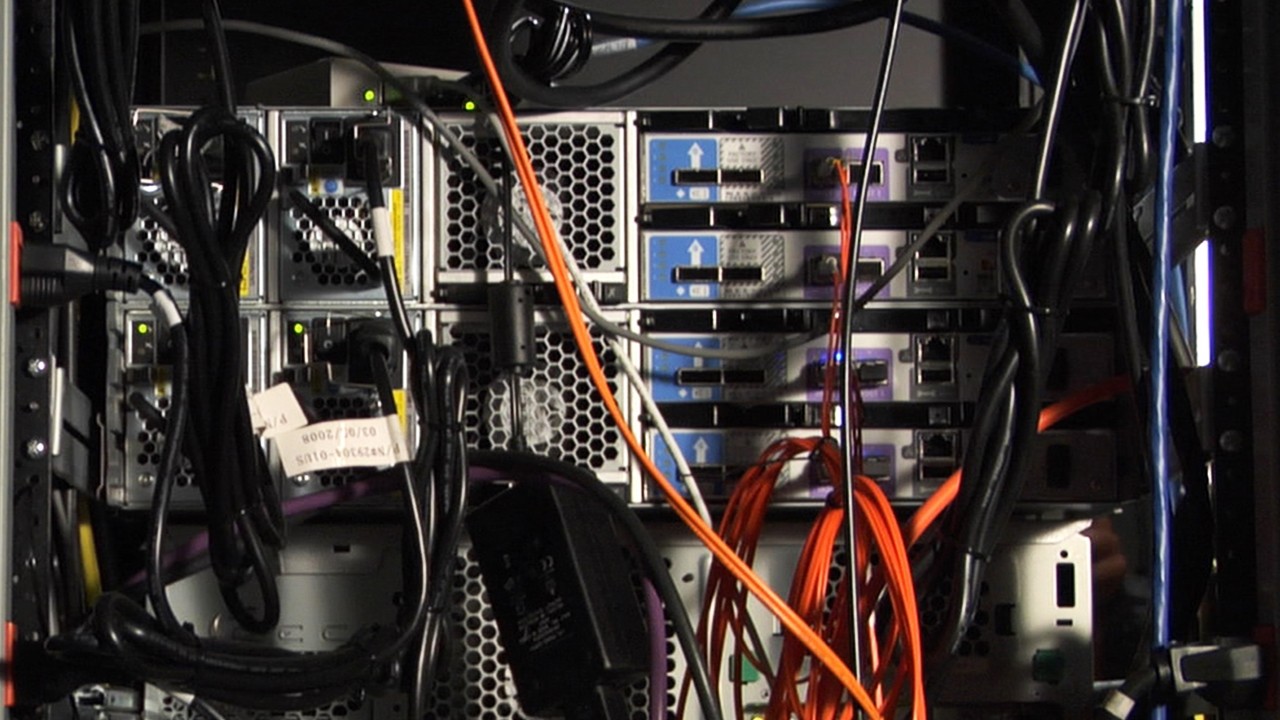If you pay for access to the internet, you should get access to the entirety of the internet. So goes the basic tenet of net neutrality. Currently, the internet you experience is the same regardless of your internet service provider (known as ISPs). Unlike cable television and its tiered “packages,” the internet is a free and open medium in America; it appears the same to a Verizon subscriber in Manhattan as it does to a Frontier customer in Portland. That is, it is equal, or neutral, you could say—a prism through which the refracted digital world, in all its oddities, targeted advertisements, marketplaces, and status updates are there for you should you want them.
Advertisement
“The internet has given more of us a voice than ever before. Now, the FCC wants to take that power away,” Evan Greer, campaign director of Fight for the Future, an activist group focused on our online rights, told VICE Impact in an email interview.Greer, is alarmed by the precarious place of freedom of speech on the internet. On December 14, the Federal Communication Commission (FCC)—a 5-person bipartisan panel that is helmed by Ajit Pai, a Trump appointee—will vote on whether or not to rescind the net neutrality protections.
Check out more videos from VICE:
Besides Pai, the FCC includes two other Republican commissioners. The order which they are championing, Restoring Internet Freedom Order (RIFO), is the penumbra from whose shadow activists like Greer are given to such concern over. The two Democrats who constitute the rest of the commission are essentially powerless to stop the repeal of Obama-era Open Internet Order ( OIO) restrictions—which reclassified broadband (high-end) internet service under Title II of the Communications Act and established a legal foundation for regulating ISPs and to protect what, for now, is the “open internet.”Like a Supreme Court Justice, FCC Commissioners can, however, submit dissents. And, without the votes to block RIFO, Commissioner Mignon Clyburn is the FCC’s Ruth Bader Ginsburg. Her minority report, published on November 22, reads as a no-bullshit refutation of Pai’s claims. Understanding Chairman Pai’s Proposal to Dismantle Net Neutrality finds her principled fury taking to task Pai’s RIFO.
These are improbable stakes for Greer: “We fight day and night to keep governments and corporations from screwing up the internet,” she wrote. “We see how the internet has changed the rules for what is and isn't possible in our democracy, and we seek to defend that power and keep it in the hands of the public.”In so fraught a situation, not all is for naught. Know that you can appeal to your local lawmaker to cancel the FCC’s vote and, on December 7, attend or host a rally to protect net neutrality.“The internet has given more of us a voice than ever before. Now, the FCC wants to take that power away."
Check out more videos from VICE:

Here’s how we got here
Advertisement
The net neutrality safeguards passed by the FCC in 2015 were the latest in a history of “common carrier” industry regulations and consumer protections. Phone companies, for instance, as a common carrier, are lawfully required to treat all calls the same. Similar protections likewise apply to public highways, canal systems, and railroads. Shouldn’t it hold that no one can pay for privileged access to a site and no ISP can purposely slow your internet speed?Reality is, when it comes to consumer protections, there are no such guarantees. As the ACLU notes, should the FCC vote pass and dismantle net neutrality: “The quest for profits and corporate disfavor of controversial viewpoints could change both what you can see on the internet and the quality of your connection.”With an unregulated internet, for instance, there is a slim chance there would be anything like YouTube. Unregulated and only companies (or billionaires) that could afford to host videos would do so, and through proprietariness, their sites would be the only place to watch them. As in, imagine if you could only watch videos on NBC’s site—and only those they approved of at that.Without net neutrality, it would be hard to imagine the internet otherwise. There would be much less diversity, or, in the language of the “free” market, much less competition. ISPs could similarly give preferential treatment to services they directly profit from while throttling—the act of intentionally slowing down an internet connection—those they don’t (like this article, for one).
What’s at stake
Advertisement
This will likely mean more than business as usual. It will probably manifest as new costs and charges appearing in your monthly billing statement.Stranger things have happened in the course of our current political regime, but it’s somewhat unprecedented for an authority to abdicate its position to regulate an entire industry. Yet, this is exactly what the FCC proposes to do under RIFO.When Pai says “restoring internet freedom” is the intention of the FCC’s vote, he is not talking about the freedom of internet consumers—your freedom. Chairman Pai, a former top lawyer for Verizon, has “made it clear he’s not listening,” wrote Greer, not to “the public, or experts, or anyone other than the telecom lobbyists he used to work with.”“No one wants to pay more money just to access the websites, apps, and services they’re used to. No one wants their ISP to decide where they get their news or which music they can access.”
How to get involved
Advertisement
This was a rallying cry by way of outrage and reason: “Lobbyists for the ISPs are constantly spreading misinformation, but they can’t make up for the fact that their arguments just really suck, and anyone who spends any time looking into their claims knows it.”Unless through an unprecedented holiday miracle, the FCC vote on December 14 will pass and OIO will be repealed. The only recourse for those who want to want to save the weird, alternative internet as well as those who don’t want to pay more than they already do to check their email and social, is Congress.The fallout from December 14 could be irreparable.
Greer recommends getting connected to your local lawmaker at BattleForTheNet.com. It’s a one-click process and the imperative for getting involved is, in Greer’s estimation, apolitical. “Everyone who cares about keeping the internet free and open needs to contact their Senators and Representatives right now.”She related that, besides contacting your lawmaker, we can get out onto the streets and be present and vocal at a series of organized protests that will take place across the country on December 7. The protests, hundreds of them, will gather at Verizon stores and congressional district offices. Go to VerizonProtests.com to host, sign up for, or find a nearby protest.The fallout from December 14 could be irreparable. Though how quickly ISPs will launch new business plans or start charging more for access is up for debate. Injurious acts toward consumers would bolster petitions for a court stay, for instance. And legal battles could rattle through a circuit district appeals court for years, perhaps, through to the end of the current administration's term. After which, a new chairperson can be appointed to the FCC.
